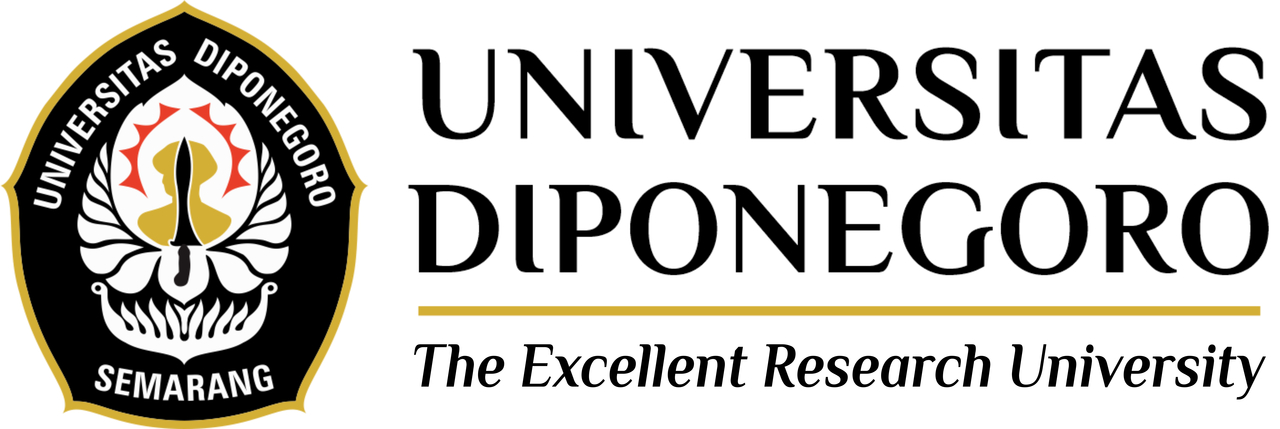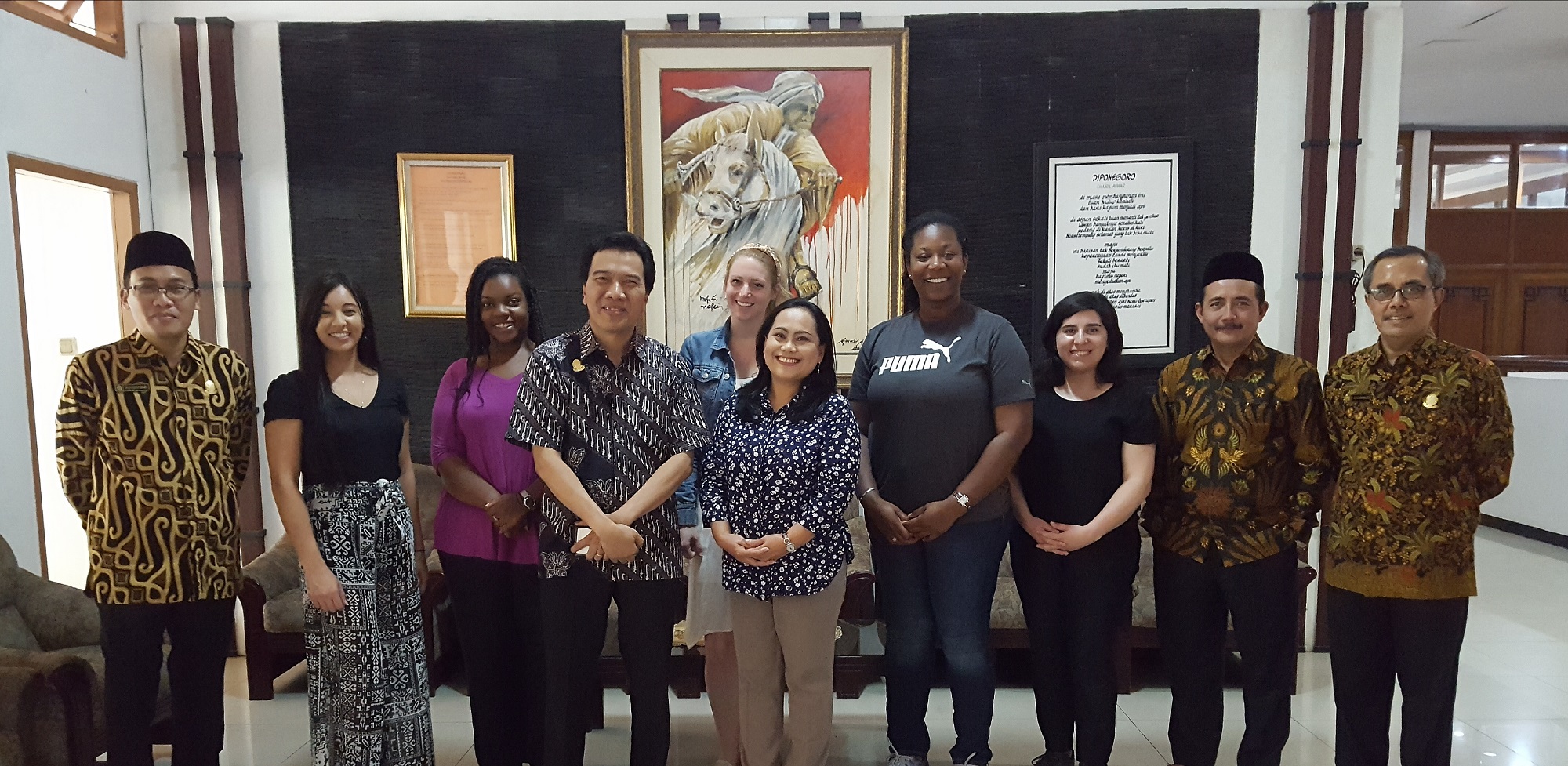August 26, 2019 | Academic & Student Affairs, COPH Home Page Feed, Featured News, Intl Programs, Monday Letter, Our Alumni, Our World, Students, Take Note!
In July, four USF College of Public Health (COPH) graduate students traveled to Indonesia to take part in the “Community Participation in Public Health” course offered by Diponegoro University in Semarang.
This is the first collaboration between the college and Diponegoro University, made possible by Dr. Hanifa Denny, a COPH alumna who’s now a faculty member at Diponegoro’s School of Public Health, Dr. Tom Mason, a COPH professor of epidemiology, and others at the COPH.
The college funded the students’ program fees, airfare and materials for the 10-day course.
“As a fully online student who does not get to interact with students or faculty on a day-to-day basis, a program centered on community participation in public health really appealed to me,” said Ashleigh Berke, a COPH MPHstudent. “I was also interested because, although my concentration is epidemiology, my professional background is in health education and community health. The course gave me an opportunity to merge by current interests with my experience.”
Semarang has a universal health care system with a heavy emphasis on community-run programs. Throughout the 10 days, students attended lectures and visited health care sites, such as community health centers, a regional health office and a tuberculosis clinic. They observed a prenatal class taught by community members, visited a health care center catering to mothers and their young children (called a posyandu) and toured a center that turns recycled plastic into products, such as key chains and water bottle holders, that are later sold.
USF students at the posyandu. Back row, from left to right: Dorothea Polk, Grace Collins, Chinyere Reid and Ashleigh Berke. (Photo courtesy of Grace Collins)
They also took part in a mosquito-control surveillance project.
“We walked with volunteers around neighborhoods checking water sources for mosquito larvae, which can spread dengue fever,” said Grace Collins, who recently graduated with her MPH in epidemiology and global communicable disease. “It was beautiful to see how the community worked together to run different health care centers. To see the care within the community was inspiring.”
Community health care workers in Indonesia―who receive about a week’s training from the government―work as volunteers, with absolutely no financial incentive.
“That’s something that really stood out to me,” said Chinyere Reid, a PhD candidate studying community and family health. “These health workers are highly regarded by their community, so that’s one incentive. But it’s also a cultural thing.” “In Indonesia, they have this idea that health is a community responsibility,” added Dorothea Polk, who’s studying for her MPH in health care organizations and management. “Health is a group effort, and they take it seriously. Having healthy neighbors reflects well upon you. It was interesting to witness the impact a community can make in the way care is delivered.”
How will the experience help the students in their public health careers?
“My focus is on health care organizations,” explained Polk. “In the U.S., health care can be viewed as a business, but in Indonesia, the focus is on people. As I move forward, I’m going to see how I can apply the techniques and values I learned from this program to the U.S. health care system.”
Story by Donna Campisano, USF College of Public Health






